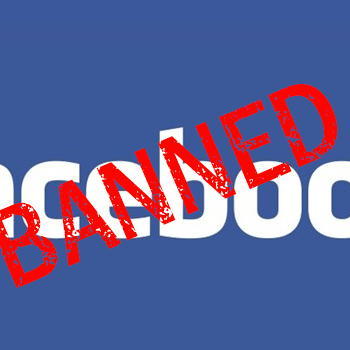Facebook “fans” are a valuable commodity. Each additional number represents a person who has shown interest in a product, individual or service and is willing to listen to their message. Every time you update your brand’s Facebook page, post a new status or share a useful article it’s a way to engage with your community. If you truly care about your community, give them links to pages of interest and throw in a special offer or two. The more useful your updates are, the more people will be willing to listen and engage. It’s really simple, actually.
That’s what makes it so confusing when people completely miss the point of social media. Something happened to me recently which illustrates this perfectly. I’ve been a fan of a particular Facebook page for about three years. It was a fairly neutral page which posted interesting updates and genuinely offered something to its fans. One day, the owner of the page posted an update to see if anybody wanted to buy the page from him. Sadly, somebody did.
Then I started noticing changes. First it was how the page looked, and then the frequency of updates and the type of things being posted started to change. The page had been bought by a brand, which was painfully obvious from the fact that their logo was plastered everywhere, as if this endless number of mindless updates would translate into increased sales. The page transformed from a treasure trove of useful information to a hollow pit of sales-driven nonsense.
 Expecting to pat themselves on the back for a job well done, they asked for feedback. After seeing a good Facebook page being slowly destroyed, I had to respond. I was kind, though, and only said, “This has always been a useful page with useful info and no sales pitches. There is a fine line between being useful and spam, please try not to cross it.” I noticed that a few others had left similar comments, after that I saw no more from that page.
Expecting to pat themselves on the back for a job well done, they asked for feedback. After seeing a good Facebook page being slowly destroyed, I had to respond. I was kind, though, and only said, “This has always been a useful page with useful info and no sales pitches. There is a fine line between being useful and spam, please try not to cross it.” I noticed that a few others had left similar comments, after that I saw no more from that page.
To me, that seemed like a reasonable comment which could have been taken constructively, as it was intended. Instead, I was promptly blocked from the Facebook page and my post was deleted. Not only is that slightly Orwellian; it’s far from social. They could have responded to my comment, ignored it, addressed it or even taken it on board. Instead they chose to remove me from their community; perhaps they were surprised by the feedback? They had requested the feedback and to my mind when you request feedback you have to be willing to accept the positive, along with the negative.
The point of feedback is to find out what needs to be improved, what is being done well and provides an opportunity to interact and engage. If I’d been blunter and mentioned the logo overkill, the spam-like updates and the transparent agenda, I would have perhaps understood why they had chosen to have me removed without prejudice, to ensure I would never be a customer of theirs and also maybe to encourage me to tell my tale of how they handle feedback.
Above all, I wasn’t treated in a sociable fashion and that is what stunned me the most. Even if people don’t bring exactly what you want to the table, you have to respect that they’ve still shown up. Interaction is a form of caring and there is always something to learn. The truth is, a Facebook page with fans that care is a page with prospective customers and also a community of prospective brand champions.
Respect your community and remember Peter Drucker. Drucker coined the term “non-customers” and the importance of finding out more about them and why they do not buy from you. Here are some of the areas to be investigated or questions to be asked in the market analysis as suggested by Drucker:
- Who is the non-customer? Why does he not buy our products?
- What do customers—and non-customers buy from others? What satisfaction do they give that they cannot get from our products?
- What product or service would fulfill the satisfaction areas of real importance—both those we now service and those we might serve?
Drucker suggested “going outside” to obtain answers to these questions but did not really provide any tools for doing so. But then Peter Drucker did not have the tools of social media at his fingertips.
Do you have a Facebook page? How do you respond to negative feedback and do you take the time to leave comments on other pages? Share your experience with us in the comment box below.

